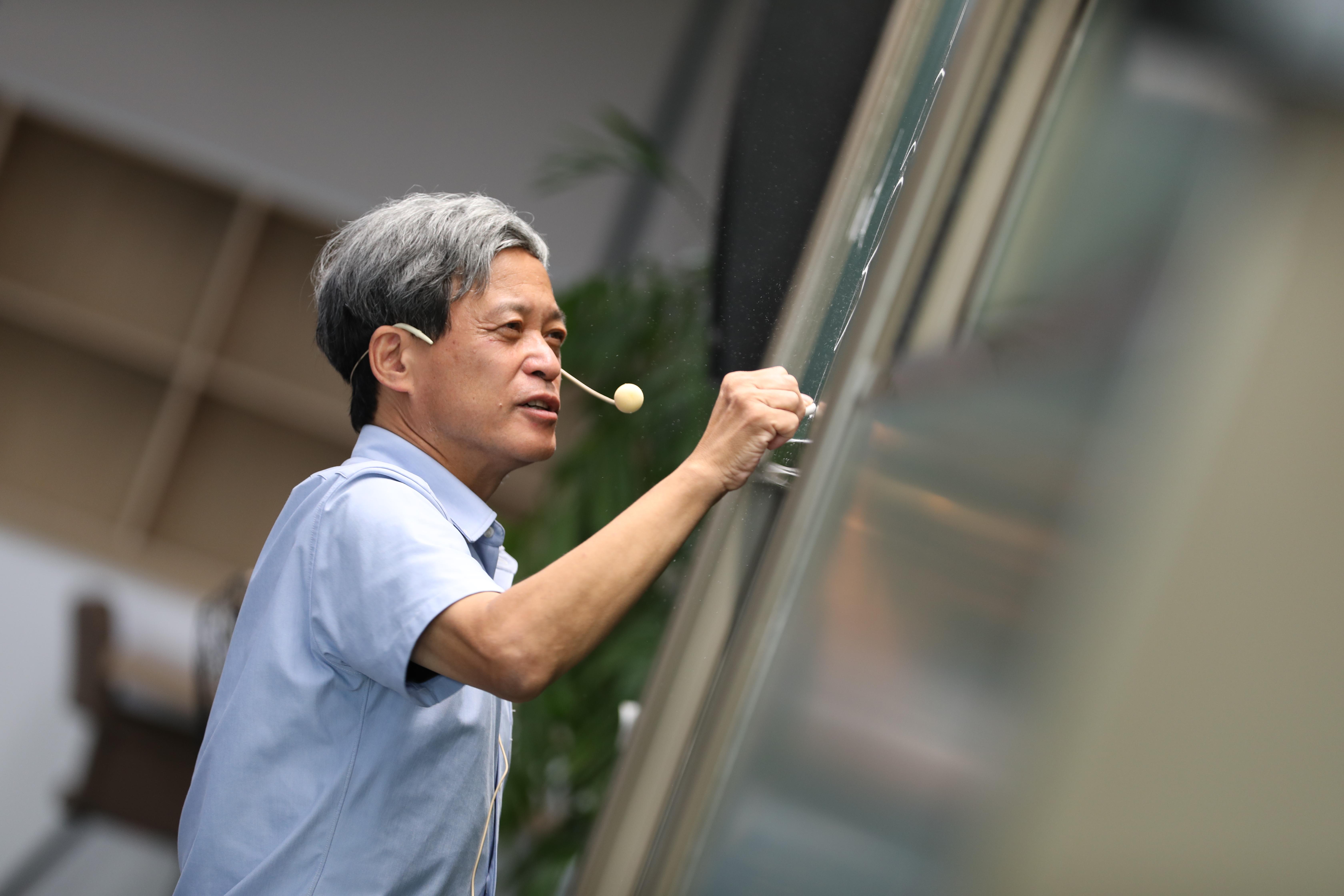Power of Math to Expand Human Understanding

Mathematics, often described as the universal language of science, has shaped our understanding of the natural world and modern technology. Experts like Professor Kenji Fukaya, a trailblazer in symplectic geometry and a Shaw Prize winner, show us just how beautiful mathematics can be and how deeply one can fall in love with it.
In an exclusive interview at Tsinghua University's Yau Mathematical Sciences Center (YMSC), where he now serves as a professor, Fukaya shared his mathematical journey with characteristic academic rigor and precision.
Academic breakthroughs
For Fukaya, the decision to pursue mathematics was made when he entered university, driven by a lifelong dream to become a scientist. But he wasn't very good at hands-on experiments and he tended to work independently. This preference toward deep thought proved to be an asset in his career.
"A major part of the job is simply to sit down and think," he says, emphasizing that the essence of his discovery often lies in sustained, focused contemplation.
One of Fukaya's groundbreaking contributions is his conceptualization of the "Fukaya category" in symplectic geometry, an achievement recognized by the 2025 Shaw Prize in Mathematical Sciences.
According to the award citation, he "anticipated the existence of the Fukaya category formed by Lagrangian submanifolds in symplectic manifolds, and accomplished the formidable task of its construction."
To make this abstract concept more accessible, he draws an analogy with classical geometry: "In Euclidean geometry, you study triangles, rectangles, and lines. In non-Euclidean geometry, you study similar objects, but their properties differ. For example, the angles of a triangle may not add up to 180 degrees. What's interesting is that the space itself defines these relationships."
Building on this foundation, the Fukaya category examines not just individual geometric objects but the entire space and the interactions between objects within it. This approach was partly inspired by physics, particularly the work of mathematical physicist Maxim Kontsevich, who proposed that certain geometric spaces that appear different could produce equivalent physical theories.
"Physicists found that two very different spaces could give rise to the same quantum field theory," Fukaya explains. "This suggested that our classical notion of space might be incomplete."
By formalizing these relationships using the category theory, Fukaya has provided mathematicians with a powerful tool to explore deep questions in symplectic topology, mirror symmetry, and beyond.
Beauty of mathematical discovery
Beyond the technical achievements, Fukaya also reflects on the deeper satisfactions of mathematical discovery. When asked about the most rewarding aspects of being a mathematician, he highlights aesthetic intuition: "In many sciences, importance is often tied to utility, which is valuable. But in mathematics, great discoveries may take centuries to find applications. We have to recognize what is important without knowing how it will be applied."
This requires an independent mindset. "Every mathematician must develop their sense of which problems are interesting and worth pursuing."
Fukaya's career is marked by intellectual flexibility. Initially trained in Riemannian geometry, he shifted to symplectic geometry in the 1990s, influenced by emerging connections between physics and advanced mathematics. "I was at the Max Planck Institute for Mathematics in Bonn, where I had the freedom to explore new areas," he recalls. "I started reading about gauge theory and spent months immersing myself in physics."
This interdisciplinary curiosity proved transformative. "Physicists and mathematicians often see the same formulas but interpret them very differently," he remarks. "Collaboration isn't always easy, but these interactions can lead to surprising insights."
Advice for aspiring mathematicians
Fukaya encourages students considering a career in pure mathematics. "Applied mathematics is often driven by concrete goals, but pure mathematics is freer. You're exploring ideas that might shape the next century," he says. He cites group theory as an example: Initially developed to solve polynomial equations, it later became fundamental to quantum mechanics, chemistry and beyond.
"The key is persistence and trust in your judgment," he says. "Mathematical problems often require months or years of work, and you'll face many setbacks. But if you believe a problem is worth solving, you have to keep going."
Asked how his work might benefit society, Fukaya remains characteristically modest. "I study abstract notions of space, ideas that go beyond our everyday experience," he says. However, from his perspective, mathematics expands human understanding beyond the limits of physical experimentation.
"Mathematics is about seeing patterns, making connections, and discovering structures that feel inevitable once you understand them," he says. "That moment of clarity, when something abstract suddenly makes sense, is what keeps me going."
NIU Yun and WANG Yiting from YMSC also contributed to this article.






